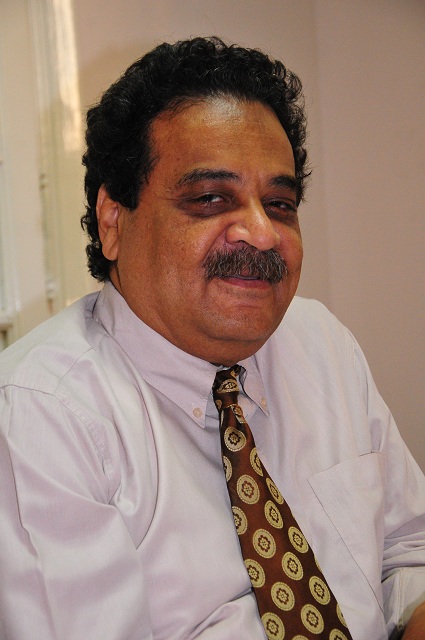
Egypt is going through many conflicts due to more than just one division. These divisions stem from a need to identify the different social components so as to predict their political and social variables. These divisions seem to clash and intersect sometimes, since they usually champion different interests, yet people usually focus on one while ignoring the other because it serves their interests.
Some are trying to force the Muslim Brotherhood and non-Brotherhood division onto Egyptian society. Their goal is to deepen the polarisation of the political life in Egypt so that the Brotherhood becomes an evil force and their opponents, the good guys. If anyone tries to differ from one of those two forces, they are quickly labelled as belonging to the “fifth column”. This accusation has become the norm for many democratic entities as they try to stand up to supporters of the police state.
Meanwhile, the Brotherhood attempts to reverse this division by labelling themselves as good and others as evil. The democratic entities, on the other hand, divide political life to three sections: supporters of the police state, supporters of the Islamist state and supporters of the civil democratic state. Further division of Egyptian political life can also be along those who want a democratic state and those who want an oppressive state.
Supporters of an Islamist state include the Muslim Brotherhood and Salafis. They succeeded in attaining power, but were quickly defeated. Their failure was not due to the non-religious nature of the people, but due to their unfair practices on the ground. Democratic entities were able to quash the Brotherhood in two aspects, through the elite and on the ground, with the people. Their oppressive practices included passing Article 219 in the 2012 constitution, which put an unelected authority above all other authorities. Their practices in small cities and slums were the reason behind the people’s anger as they turned into sectarian groups trying to dominate any source of power in a neighbourhood or city and even control people’s daily behaviour.
Supporters of the police state include three groups: those who want a fair oppressor (i.e. dream of cloning Abdel Nasser), those who long for the days of Al-Habib Al-Adly, and those who champion administrative reform or Gamal Mubarak’s group.
Supporters of the democratic state include three main schools of thought that have been around since the Second World War: the leftists, the Nasserites, and the liberals. After 25 January, they were joined by a new political force and that is the social-democratic group. If the army does not side with the police state – something that hasn’t happened yet, as according to popular sentiment – then the challenge facing democratic entities is unity. In other words, the challenge is related to how dedicated they are to the democratic project. Some of the parties, especially the leftist ones, seem to side with the idea of bringing back Abdel Nasser, the fair oppressor. On the other hand, some liberals are inclined towards the police state in fear of the rejuvenation of social activism, which would lead to a decrease in profits for the higher tiers of society. This division could affect the unity of the democratic political speech.
In addition, another challenge is to realise how powerful and how experienced they are in dialogues with other political forces. The democratic movement played an important role in collecting Tamarod signatures. Yet, some of the supporters of the police state were quick to expel the democratic entities from the political scene, only to realise their need for the movement to sell people on the new constitution. The democratic movement still has some credibility with people despite the security apparatus’ effort to tarnish democratic entities through leaked recordings and negative media campaigns.
Other challenges include the lack of experienced democratic political leaders in relation to the number of political players on the scene. Despite the influx of new blood in democratic parties, this also represents a problem since it puts inexperienced people at the helm of political participation. This is in addition to the lack of monetary funds and resources and the democratic movement’s uneven reach in governorates and different socioeconomic classes.
However, the democratic project is the only one that has not been defeated. With the right organisational power and clear social direction, it can rebuild Egypt and save it from total collapse. For this to work, the army has to side with the project for reasons that will be discussed in future articles.



